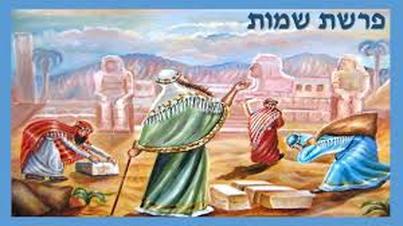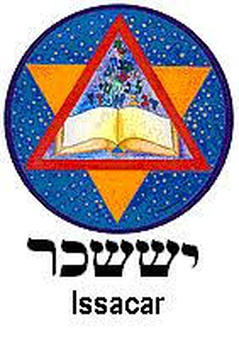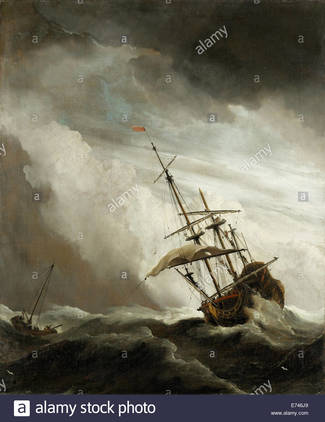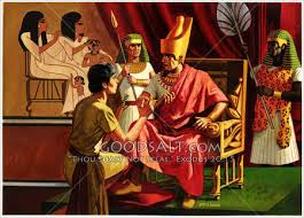
וארד להצילו מיד מצרים ולהעלתו מן־הארץ ההוא אל־ארץ טובה ורחבה אל־ארץ זבת חלב ודבשׁ אל־מקום הכנעני והחתי והאמרי והפרזי והחוי והיבוסי׃
ועתה הנה צעקת בני־ישׂראל באה אלי וגם־ראיתי את־הלחץ אשׁר מצרים לחצים אתם׃
Adonai said, "I have seen how my people are being oppressed in Egypt and heard their cry for release from their slavemasters, because I know their pain. I have come down to rescue them from the Egyptians and to bring them up out of that country to a good and spacious land, a land flowing with milk and honey, the place of the Kena`ani, Hitti, Emori, P'rizi, Hivi and Y'vusi. Yes, the cry of the people of Isra'el has come to me, and I have seen how terribly the Egyptians oppress them.
(Exo 3:7-9 CJB)
In this passage HaShem claimed He has seen the oppression of His people. That He heard their cries. He says, "I know their pain" which resulted in "I have come down..."
In two weeks we will go over Par'shat "Bo". Though English texts of that parasha translate it as "Go", in Hebrew, "Bo" means "Come". The sages have therefore concluded that if HaShem tells Moshe, "Come to Pharaoh..." (Ex 10:1), as opposed to "Go to Pharaoh...", HaShem must be in Egypt. From there we learn that HaShem did not just content Himself with observing the situation from afar. He came down and took part of the afflictions of His people.
This sets an example for would-be leaders of HaShem's people. We cannot be satisfied with leaders which display mere remote empathy. A leader of HaShem's congregations need to be able to not just say "Sorry for your problem...!", or "I feel and understand your pain ...!", (when we really sometimes don't) but he needs to really truly empathize, and that from a heart of personal experience. If a leader is to empathize from a heart of personal experience, one cannot be a true leader of HaShem's people without having personally gone through harrowing experiences and done some pretty awful blunders themselves. How else could they understand and have mercy on us simple people! In fact, mistakes and blunders seem to be the hallmark of those HaShem chooses to lead His people.
I am remembered of the famous story of Jim Elliot and Nate Saint who went to teach about the God of Yeshua to the Mincayanis, a Waodani tribesman from the jungles of Ecuador in 1956. The tribe was so engrossed in personal vendettas that they did not know what it meant to have grandchildren. They actually killed Jim and Nate with their spears. Later, Jim Elliot's wife of decided to continue her husband's work and went to live among the Mincayanis in order to care for them. That was something that took them by surprise. Her main message was about the God who could understand them because 'He Himself had lost his son by a spear. But though it was painful to Him, He did not choose to go for revenge but rather to use His son's death as an element of life for those who killed him.' You can watch the docu-drama rightly called 'The End of the Spear' here: http://christian-flix.com/end-of-the-spear/
Because of His similar experience, those tribes people felt that that God could understand them, so they were willing to listen to His Words and let them change their lives. A beautiful true story.
Here is an anecdote to illustrate the point. (Heard from Rabbi Shalom Shwadron)
A little boy was playing in front of Rabbi Shwadron's house in Jerusalem. The child fell, and received a nasty cut. Hearing the child's cry, Rabbi Shwadron ran outside, put a towel over the cut, and rushed over with the boy to a doctor that lived nearby. As he was running, an elderly lady noticed his concern and distress and, thinking it was one of Rabbi Shwadron's children, called out, "Don't worry, don't worry, Hashem will help!"
It so happened that the boy was the woman's grandson. Rabbi Shwadron was curious to see her reaction when she would realize the child's identity. Sure enough, as soon as she realized that it was her grandson, she stopped saying, "Don't worry," and started screaming at the top of her lungs, "My Meir! My Meir!" while neighbors tried to calm her down.
When someone else's child is involved, you may detachedly say, "Don't worry"; but when your own child is involved, then you'll shout!
Such kinds of leaders were the foremen of the Children of Israel in Egypt.
The text of the Torah tells us,
'The foremen of the people of Isra'el, whom Pharaoh's slavemasters had appointed to be over them, were flogged and asked, "Why haven't you fulfilled your quota of bricks yesterday and today, as you did formerly?"
(Exo 5:14 CJB)
Rashi, the medieval commentator writes: These officers were Israelite. They had pity for their fellow Israelites and did not force them to fill their quotas. When the officers handed over bricks to the Egyptian taskmasters, the taskmasters beat them for not having pressed the workers to fill their quotas. (Shemot Rabbah 5:20 cited by Rashi).
About the issue of leadership, the Chofetz Chayim also writes that leaders very often take unfair advantage of the people working under them. The just mode of behavior, however, is to never act condescendingly toward others, even if you are elevated to a rank above them.
Arrogance is a trait which is strictly forbidden. According to some authorities, the prohibition against arrogance is listed among the 613 commandments of the Torah. We should learn from the officers of the Children of Israel who not only did not take unfair advantage of those under them, but who even suffered physical pain to aid them. (Machaneh Israel, pt 2 ch 3.)
It is recorded in the Torah that when Moshe followed Jethro's advice to share the load of the care of the people by delegating responsibility onto others, he looked for ... able men from all the people, men who fear God, who are trustworthy and hate a bribe, ....(Exo 18:21) When Moses asked the people to chose these kinds of leaders, Jewish historians tells us that the people chose these officers who had suffered the lash of the Egyptians on their behalf.
Bringing this situation closer to our concerns as disciples of the Master, about the events that happen in the desert Paul teaches that ... these things took place as examples for us, ...(1 Co 10:6). This choice by the Children of Israel should therefore serve us as a good sample of the kinds of leaders we should chose for our congregations.
The Master Himself taught about choices in leadership in the following words. He said,
"You know that among the Goyim, those who are supposed to rule them become tyrants, and their superiors become dictators. Among you, it must not be like that. On the contrary, whoever among you wants to be a leader must become your servant, and whoever wants to be first must be your slave! (Mat 20:25-27)
..whosoever shall exalt himself shall be abased; and he that shall humble himself shall be exalted. (Mat 23:12)
The Master Himself, our Leader and King, set the example for us by suffering the lash of the Romans on our behalf.
It is the conviction of this writer that only when, like the Children of Israel of old, we will desire and establish such types of leaders over our congregations, that is,
- Leaders who give their lives in service for the people they serve;
- Leaders who do not consider their office as gain;
- Leaders who reject pride and arrogance in favor of humility and service;
- Leaders who know that mercy is a bridge they cannot deny others without denying it to themselves;
- Leader who, through their personal abnegation can show the miracle of the resurrection in their own lives of service to the body;
... our messianic movement will be strong and fulfill its mission of being the Light of Messiah to the world just as it did before!



 RSS Feed
RSS Feed